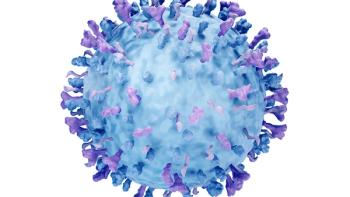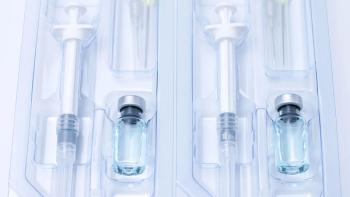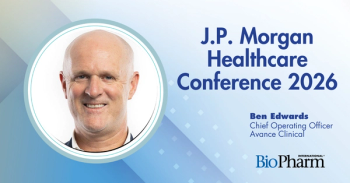
- BioPharm International-09-01-2005
- Volume 18
- Issue 9
Outsourcing: All Eyes on Asia
In addition to India and China, other Asian countries are establishing themselves as destinations for biopharma companies.
The biopharmaceutical industry has begun to embrace sourcing from Asian countries in a big way. Major biopharmaceutical companies view sourcing in Asia as a principal component of their cost reduction strategies, as well as a means of meeting their need for treatment-naïve research subjects. Contract research and manufacturing organizations recognize that they must respond by establishing their own low-cost Asian operations or risk being shut out by lower cost competitors. Providers of discovery, clinical research, and active pharmaceutical ingredient (API) manufacturing services are leading the way.
Jim Miller
The perception of Asian countries, notably India and China, as low-cost R&D locales is a major driver in the offshoring trend. Those countries have an abundance of scientific and technical manpower, and wage rates of their chemists and researchers are said to be 60 to 70 percent lower than the costs of similarly-experienced staff in the US or Europe.
Of course, wage rates are only a part of the cost equation: the quantity of resources required to obtain the desired output is the other key variable. The experience in the biopharmaceutical and IT industries has been that the quantity of resources required to get a project completed offshore is often much greater than what would be required domestically, thanks to differing levels of productivity, miscommunication, project management complexity, and sourcing overheads. The net cost may indeed be lower, but not by the degree suggested by wage differences.
EXPANDING SUPPLIER BASE
The focus on costs overshadows other critical factors in deciding to source from Asia. In particular, it fails to account for the long-term attractiveness of Asian countries as markets for pharmaceuticals. This is especially true of India and China, which have total populations of one billion or more and burgeoning middle classes. The major biopharmaceutical companies realize they must build a strong local presence in those countries to remain competitive with indigenous biopharmaceutical companies, which are growing in sophistication, especially in India.
Another overlooked factor in the growth of offshore sourcing is the growing sophistication of the supplier base. According to FDA statistics, India has 75 manufacturing facilities that are compliant with US GMP standards; that's more FDA-compliant facilities than any country other than the US.
The abundance of qualified facilities is being driven in large part by the introduction of Indian biopharmaceutical companies into the US generics market as API and drug product providers. At the same time, companies whose business is primarily contract manufacturing, e.g. India's Strides Arcolab (Bangalore), are also achieving FDA standards. Strides Arcolab is becoming an important supplier of sterile injectable products for the US market, thanks to contracts with several major generics companies in the US market. It recently announced it will merge with Matrix Laboratories (Hyderabad), a manufacturer of small molecule APIs, to form a manufacturing company with total revenues of $240 million.
India's Biocon (Bangalore) is one of the world's largest biopharmaceutical companies, with revenues of almost $167 million in fiscal year 2005. The company develops, manufactures, and markets therapeutic drugs and industrial enzymes. It has developed a proprietary bioreactor technology and is building a commercial-scale mammalian cell culture facility to manufacture proprietary monoclonal antibody products.
Like many Indian bio/pharmaceutical manufacturers, Biocon also has moved to exploit the growing opportunities for contract research organizations (CROs) in India by establishing two contract subsidiaries: Clingene offers clinical research services, and Syngene specializes in discovery chemistry and early-stage process development services.
ALTERNATIVE MODELS
US-based biopharmaceutical companies wanting to source some of their requirements in India have several business models to choose from. They can work wth US-based companies that maintain capabilities in India, work through US-based agents, or work directly with an Indian company.
Discovery Partners International (DPI, San Diego, CA), which specializes in discovery-related services such as computational chemistry, lead optimization, and high-throughput screening, works with Chembiotek, an Indian CRO. Chembiotek's capabilities mirror some of DPI's capabilities, but projects are sent to India "when it makes sense," according to Daniel F. Harvey, Ph.D., vice president. Because setup is more complex, a project sent to Chembiotek must be one of some size, says Harvey, and allow for delivery over an extended period of time. Projects worked in India can take about twice as long as those undertaken at DPI's U.S. facility, according to Harvey.
While the DPI-Chembiotek model offers clients access to a single provider, Aagami, Inc. (Naperville, Ill.) gives US clients access to multiple labs, manufacturing facilities, and CROs through a network of "preferred partners" in India. Aagami founder and CEO Dinesh Jain says this approach mimics a successful IT business model. Aagami assumes management responsibilities, financial risk, and all aspects of the customer relationship.
IP CONCERNS DECLINING
One oft-cited barrier to offshoring seems to be dissipating, namely, concerns over intellectual property (IP) protection. Much has been made of India's adoption earlier this year of the Trade Related Intellectual Property Rights (TRIPS) agreement of the World Trade Organization (WTO). The legislation brought India into line with western countries on recognition of product patents, and it is expected that western biopharmaceutical companies will feel more comfortable having proprietary products handled in India in light of that protection.
More importantly, however, major biopharmaceutical companies have developed sophisticated methods of due diligence to assure themselves that Indian CROs can be trusted with their IP. By undertaking exhaustive examinations of record-keeping systems, study blinding efforts, staff recruitment, and training practices, biopharmaceutical companies have established successful relationships in IP-intensive activities like medicinal chemistry and are experimenting with process development, formulation, and manufacturing projects.
SINGAPORE
While India and China get a lot of the attention, other Asian countries are establishing themselves as destinations for western biopharmaceutical companies. Foremost among these is Singapore. The island nation has launched an all-out effort to attract biopharmaceutical companies and has enjoyed considerable success. Major biopharmaceutical companies have large manufacturing operations there (Merck, Pfizer, Wyeth, Novartis), and some contractors are taking a serious look at Singapore for their Asian presence.
Singapore has been able to compete with India and China by offering attractons such as tax benefits, an excellent workforce, investment participation by the Singapore Economic Development Board (SEDB), political stabililty, and a legal regime that respects intellectual property. Singapore's central location and excellent transportation links to the rest of Asia and the West are what it make it most attractive to CROs.
Quintiles Transnational Corp. (Research Triangle Park, NC) has made Singapore its headquarters for its Asia Pacific operations that include clinical research services, clinical supplies distrubution, central lab services, and contract sales and marketing. Other clinical CROs have a signficant presence in Singapore, including Covance Inc. (Princeton, NJ), which has office and central lab operations there. Clinical packager Fisher Clinical Services Inc. (Allentown, PA) has operated distribution and warehousing services in Singapore for about five years.
One homegrown player in Singapore is contract biomanufacturer A-Bio Pharma Pte Ltd.). A-Bio offers cell line and process development and small-scale GMP manufacturing for biologics using mam-malian cell-culture technology in its 60,000-ft2 facility. A-Bio signed a clinical supply service agreement with GSK in the fall of 2004 to develop and produce clinical lots for a vaccine product.
A major recent development is an announcement by Lonza Group (Basel, Switzerland) that it will build a commercial scale facility in Singapore. The facility will have four cell culture bioreactor trains with capacity up to 20,000 L. It will begin operations in 2007.
Jim Miller is president of PharmSource Information Services, Inc., 703.914.1203, Fax: 703.914.1205,
Articles in this issue
over 20 years ago
Building Automation Systems in a PAT Frameworkover 20 years ago
Regulatory Beat: Crawford Faces Policy and Program Challengesover 20 years ago
Operations Excellence: BioPharma Operations Excellenceover 20 years ago
The United Kingdom: Leading the Global Competition for Biotechover 20 years ago
International Patents and International Harmonizationover 20 years ago
The Search for Cancer Diagnostic Markers: A Race Against Timeover 20 years ago
Final Word: Collaborate to Compete?over 20 years ago
StreetTalk: No Cure for Cancer? Wall Street Waits - and HesitatesNewsletter
Stay at the forefront of biopharmaceutical innovation—subscribe to BioPharm International for expert insights on drug development, manufacturing, compliance, and more.




